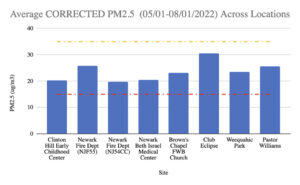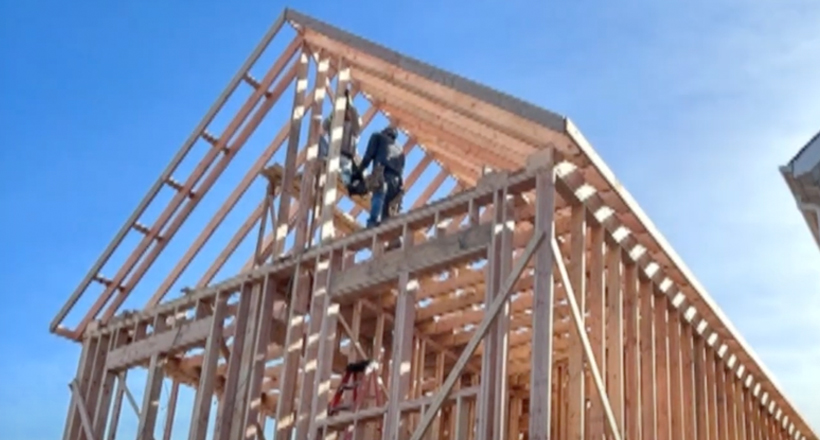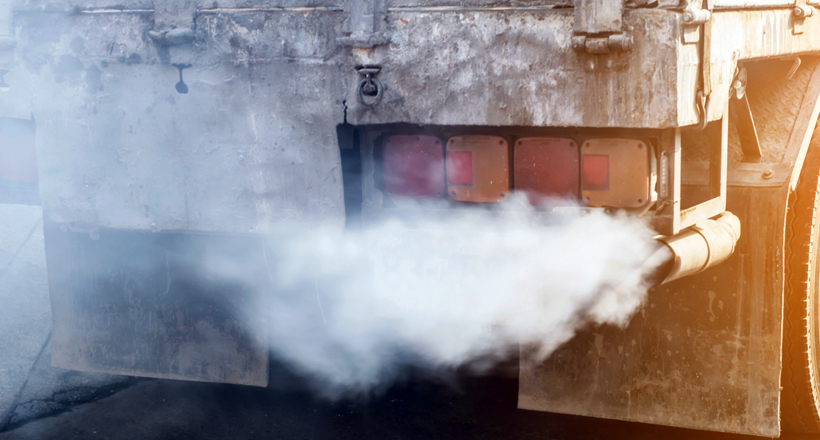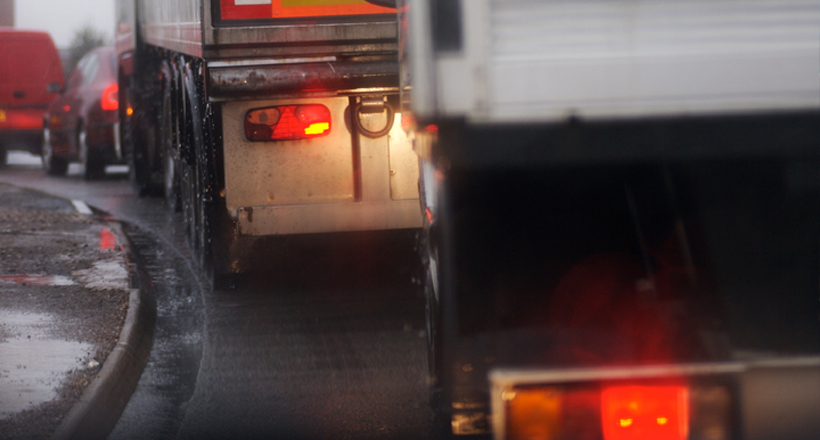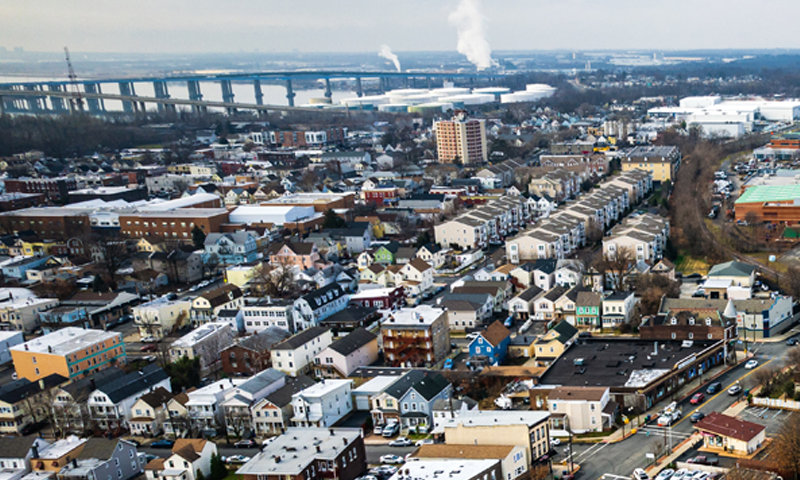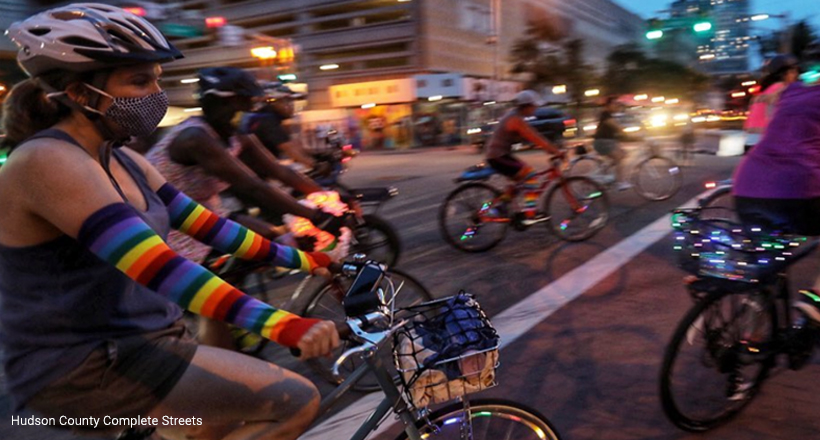TRANSFORMATIVE CLIMATE COMMUNITIES
Community Group Monitors Air Quality, Advocates for Emissions Reduction in Newark’s South Ward
Kim Gaddy, Founder and Director / South Ward Environmental Alliance
With support from the New Jersey Climate Change Resource Center, our organization, the South Ward Environmental Alliance (SWEA), has continued conducting our air quality monitoring project, which kicked off in 2021. The project aims to identify and measure air pollution in the South Ward of Newark, publish the data collected, and push for policies to reduce these harmful emissions.
A significant air pollutant we have identified in our community is diesel particulate matter. This known carcinogen can worsen pre-existing respiratory or pulmonary conditions such as asthma, bronchitis, and emphysema. Newark is already disproportionately affected, as “one in four students have a diagnosis of asthma.” as Patti Verbanas reported in Rutgers Today.
“Our teams counted over 1000 trucks per hour. Our community does not deserve to be forgotten and polluted.” – Asada Rashidi, Environmental Justice Organizer for SWEA, after conducting a truck count in the South Ward
The South Ward is one of Newark’s neighborhoods most heavily affected by pollution emitted from diesel trucks traveling to and from the Port of NY/NJ, Newark Airport, numerous industrial facilities, and nearby highways. Over 25,000 daily diesel truck trips from the Port of Newark and 4,500 trucks travel regularly along our local community roads. Particulate matter emitted from diesel trucks threatens the health of our community, traps heat, and degrades the atmosphere’s ozone layer, further contributing to climate change.
SWEA works with others to place PurpleAir monitors, a low-cost sensor for monitoring air pollution, in strategic high-traffic locations around the neighborhood. Community members selected to serve on the Air Quality Monitoring Advisory Board have recommended particular sites based on known or perceived hot spots.
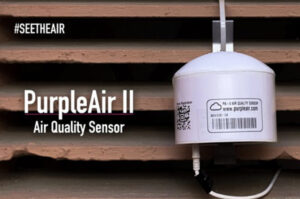 The PurpleAir sensors that SWEA uses measure airborne particulate matter (PM), solid particles suspended in air, including dust, smoke, and other organic and inorganic particles. Breathing particulate matter is hazardous to human health, and certain components of particulate matter contribute to climate change.
The PurpleAir sensors that SWEA uses measure airborne particulate matter (PM), solid particles suspended in air, including dust, smoke, and other organic and inorganic particles. Breathing particulate matter is hazardous to human health, and certain components of particulate matter contribute to climate change.
PurpleAir monitors include the following features making them an accessible tool for community groups like SWEA:
- Sensors are stationary and measure PM1.0, PM2.5, and PM10.
- They are easy to install and only require a power outlet and Wi-Fi.
- Monitors display real-time air quality measurements on an online public map.
This coming year we aim to set monitors up at other locations in the South Ward, collect more data to share with our technical partners for additional analysis, and involve other community partners to understand the best practices for using the monitors.
See below for air quality data collected from eight locations within the South Ward over a three-month period last year.
